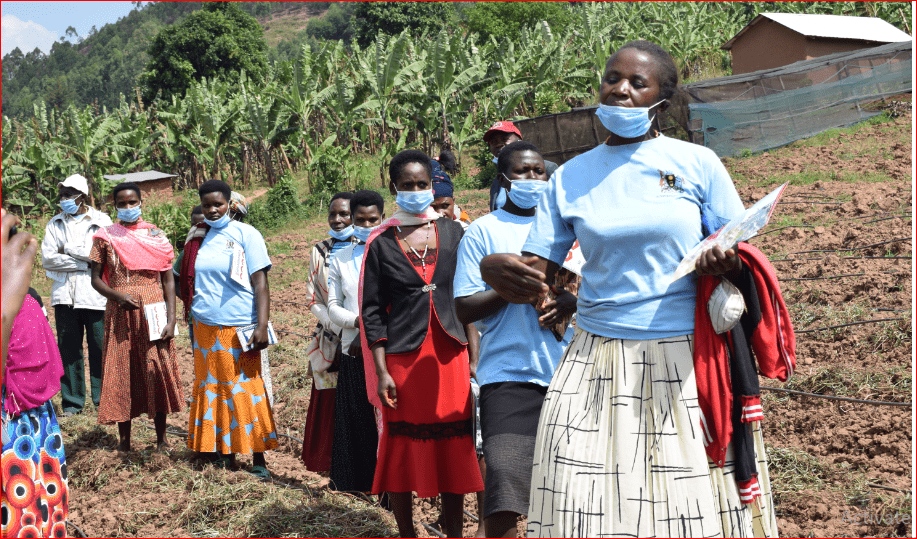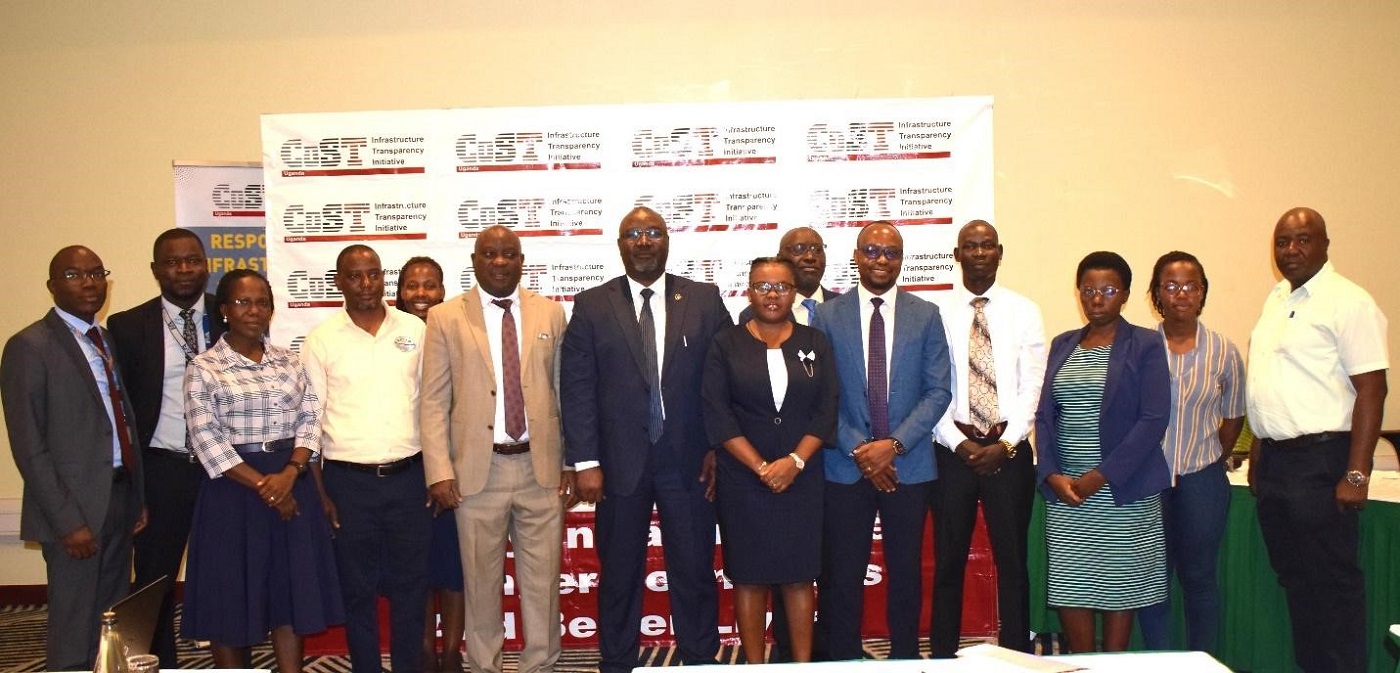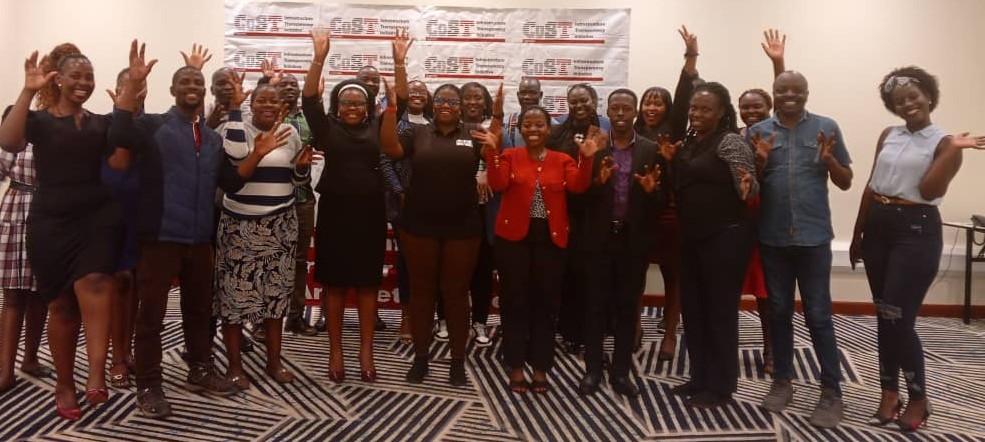
CoST Uganda in partnership with Public Procurement and Disposal of Public Assets Authority (PPDA) organized and conducted a webinar on good practices for promoting integrity in public infrastructure delivery processes. The webinar that was virtually held on Tuesday 18th May 2021, was moderated by a Senior Journalist from UBC Television Mr. Ssemakula Gyagenda. The webinar attracted about 40 stakeholders from various sectors including but not limited to; the government (MDAs), Private Sector, Civil Society Organizations (CSOs), media, CoST International and National secretariat and AFIC team.
Building on our previous conversation on 8th December 2020 on integrity issues in public infrastructure procurement, it was prudent for CoST Uganda to provide a platform for private sector, citizens and government to engage on integrity issues in public infrastructure delivery processes with specific objectives to; create awareness on the existing legal and policy framework on ethics and integrity in public infrastructure delivery processes, identify and discuss integrity issues, lessons and good practices for enhancing ethics and integrity in the delivery of public infrastructure projects and; document commitments on integrity issues in public infrastructure delivery processes.
Integrity in public procurement translates to reliability, bidders and all other stakeholders need to have assurance that they can rely on any information disseminated by the procurement entities, formally or informally. The integrity of the procurement process assures confidence in the public procurement process. When solicitation documents are issued by the procurement entity, the information provided should be reliable and free of uncertainty or bias[1],.
A draft report on the factors hindering private sector participation in public infrastructure procurement processes highlighted a number of factors especially for local firms including; unrealistic eligibility/ bidding requirements such as high capital requirements, equipment and human resource, dependency on development aid, limited implementation of guidelines on reservation and preference schemes to promote local content in public procurement, lengthy procurement cycle for infrastructure projects, unfair competition with International companies, delays in payments especially on projects funded by government, among others.
Promoting integrity in public procurement.
A report [2] by PPDA Uganda from a survey on integrity risks conducted highlighted major risks in public procurement such as; conflict of interest and corruption in the evaluation process, familiarity with bidders over time, personal interests such as gifts, no checks and balances of the assessing officers, substantial change in contract conditions to allow more time and higher prices for the bidder, forgery of documents, deficient supervision from public officials and failure to adequately meet contractual obligations. While a number of risks in public procurement have been identified, this has provided PPDA an opportunity to implement E-Government Procurement to increase efficiency substantially, and reduce interface between providers and public officials. The system has been developed and is currently being piloted in 12 Entities and later on it is expected to be rolled to all Government agencies within the next two financial years. Efforts have been made to amend the 2003 PPDA Act to strengthen the sanctions regime in the PPDA Act to make Accounting Officers more accountable for their actions[3].
Through collaboration with Civil Society Organizations to support the monitoring of Government projects and report any irregularities, this has given PPDA an opportunity to address some of these challenges of implementation of infrastructure projects[4],
PPDA as a regulator has made strides in strengthening disclosure, policy interventions for the participating of the private sector, a platform for engagement between Government and the Private sector on issues affecting their participation in public infrastructure procurement and has in partnership with CoST Uganda conducted a study to identify issues affecting private sector concerns and strategies for redress. With CoST’s support, PPDA is in the process of aligning the GPP to CoST OC4IDS and development of an infrastructure reporting template for all the Procuring and Disposing Entities, said Faith Mbabazi.
PPDA has worked with MoFPED to fast track the passing of the Institute of Procurement Professionals of Uganda to regulate the ethical conduct of procurement practitioners, while conducting trainings and awareness raising for suppliers and citizens to increase their knowledge on the Public Procurement law, including through the media. PPDA has gone ahead to conduct stakeholder engagements with High Spend Entities to discuss performance of high value procurements and explore strategies to improve procurement outcomes.
PPDA continues to suspend unethical providers from participating in public procurement or disposal proceedings while collaborating with other enforcement agencies such as CID, DPP and IG to ensure further action against unethical behavior.
It was no different in the OAG audit Financial Year 2019/2020[5] which discovered delayed completion of public works (cost and time overruns), inadequate supervision, and incompetence of contractors who sometimes abandon works. The OAG holds in high regard the importance of engaging citizens on the implementation of public projects as these stand as the primary beneficiaries of the these projects.
Speaking at the webinar, Mr. John Hawkins the Programmes Director, CoST International shared a global perspective of challenges affecting public infrastructure delivery processes including; corruption ($15 trillion investment gap), 30% in efficiencies in infrastructure sector, poor governance, and low levels of public trust. He shared some of the areas where risks exist in infrastructure such as; quality of construction, project preparation, security issues, contract management, tender and contract award, issues of project preparation which include matters related to inaccurate or absent planning studies of different natures among others. He noted that CoST is mitigating these challenges by implementing some of the strategies like; established programme with 19 members and growing demand, endorsement from business, internationally recognized tools and standards, an ambitious plan to scale up impact and track record for financial cost savings and substantial institutional reforms.
” Issues of project preparation include matters related to inaccurate or absent planning studies of different natures, this ranges from incomplete or outdated project design to lack of feasibility studies, site surveys, budget plans, environmental or social assessments and even the inexistence of estimations in relation to the sources of project funding, planning stages are critical to allocate the correct resources to projects that normally cover more than one political cycle, evidence suggest that although low income countries have improved their overall infrastructure implementation capacity, the processes of project appraisal, design, and selection, which are the core of a project’s planning stage, remain highly problematic and without adequate appraisal and project design numerous revisions are necessary during the implementation stage, adding costs and time to the project’s initial estimations. But, more than that, appropriate planning is also essential to assure that tender proceedings are executed properly”, said John Hawkins.
Ministry of Works and Transport (MoWT) initiated a project for registering contractors to develop the National Contractors Register. The daft register is available, awaiting buy-in from contractors and consultants, a training of trainers, training of contractors, establishment of Construction Industry Development Committee to advise the minister on issues of construction, monitoring the adherence to the guidelines by its agencies where UNRA was awarded for adherence to polices in project implementation All this was intended to address integrity issues in public infrastructure procurement.
“To address the challenge in public procurement, there was need for the National Contractors Register, Uganda Institution of Professional Engineers (UIPE) and Ministry of Works and Transport are working closely with UACE and UNABCEC to address the construction issues”, said Eng. Ben Kyemba on behalf of the Permanent Secretary, Ministry of Works and Transport.
During the discussion, various stakeholders raised a number of issues ranging from; attitude issues (mindset) , inadequate market assessment, inadequate capacity building of local contractors to write winning proposals, thresholds for infrastructure projects, conflict of interest at tender and approval stages, lack of sanctions to PDEs who fail to adhere to the guidelines/policies, inadequate implementation of reservation schemes and local content, lack of guidelines on manufactured products, corruption and bribes among others. There was a call to PPDA and the Ministry of Works and Transport as well as civil society to address these shortcomings.
MDAs committed to take action on the areas of concerns by stakeholders. PPDA assured stakeholders that with the progress made on some of the reforms catered for in the guidelines will go a long way in establishing good practices for promoting integrity in public infrastructure delivery processes while collaborating with other government bodies and the civil society.
Going forward, CoST Uganda will continue engaging with the stakeholders to discuss, share lessons and experiences on integrity issues in public procurement while involving all stakeholders including the Civil Society Organizations and media to enhance our advocacy in public infrastructure. For effectiveness, CoST Uganda will be organizing and conducting quarterly webinars as well as documenting impact from the previous webinars and also following commitments with stakeholders on their commitments including commitments from the previous webinars. CoST will also be compiling and sharing list of recommendations and actions made from all the webinars held.
Through this engagement, we noted that there are a number of silent integrity concerns in public procurement which are limiting the private sector’s participation in public procurement. Stakeholder engagement is key in the process of promoting integrity in business, this provides opportunity for relevant stakeholders to receive direct concerns and make commitments to addressing them and also provides opportunities for collaboration.
[1] https://procurementclassroom.com/integrity-in-public-procurement/
[2] https://www.ppda.go.ug/download/corporate_reports/corporate_reports/PPDA-2nd-integrity-survey.pdf , https://www.ppda.go.ug/download/corporate_reports/corporate_reports/PPDA-3rd-Integrity-Survey-Report-.pdf, https://www.ppda.go.ug/download/corporate_reports/corporate_reports/Integrity-survey-FINAL-REPORT-2007.pdf
[3] https://www.cost.or.ug/levelling-the-playing-field-how-cost-uganda-promotes-business-integrity/
[4] https://www.cost.or.ug/4th-assurance-report-in-the-media/
[5] http://www.oag.go.ug/wp-content/uploads/2021/03/OAG-PERFORMANCE-REPORT-2020-FINAL.pdf



